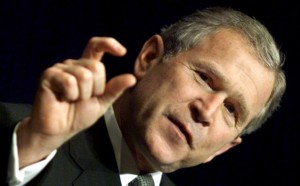Brother, Can You Spare a Dime? I Only Earn Six Figures
By Paul Krugman.
 I live in a very sheltered world, yet I know young people just out of college who can’t find employment; men in their late 50s who have lost their jobs and think they will never find another; and families barely scraping by, terrified by what might happen if anyone were to get sick. These days, there are terrible stories everywhere you look.
I live in a very sheltered world, yet I know young people just out of college who can’t find employment; men in their late 50s who have lost their jobs and think they will never find another; and families barely scraping by, terrified by what might happen if anyone were to get sick. These days, there are terrible stories everywhere you look.
Yet some Americans who have secure jobs and rather high incomes are feeling very sorry for themselves because it’s possible that they might have to pay somewhat higher taxes next year if the temporary reductions made during President George W. Bush’s tenure in office are allowed to expire for the wealthy.
Take, for example, an unnamed person mentioned in a recent online post by economist J. Bradford DeLong. This person supposedly makes $450,000 a year, has a family of five and after paying bills, loans, taxes and everything else (including private school tuition for three children and the costs of a $1 million house), is left with only a few hundred dollars a month of discretionary income. Mr. DeLong says this person strongly feels that he should not have to pay more taxes — “It is unfair: he is not ‘rich.’”
As Mr. DeLong puts it, “Is it pathetic that somebody with nine times the median household income thinks of himself as just another average Joe, just another ‘working American’? Yes.”
By using the Tax Policy Center’s online tax calculator, I have determined that the aforementioned sorry-for-himself person might indeed end up paying higher taxes next year — there is some uncertainty linked to our lack of knowledge about the details of his family situation — but probably not more than 2 percent of his income. So, Mr. DeLong points out, this person is angry — and not at financiers, but at “Barack Obama, who dares to suggest that the U.S. government’s funding gap should be closed partly by taxing him.”
Let’s set aside the disgruntled taxpayer’s story for a moment and look at the larger picture. Temporary tax breaks for the rich are stunningly bad economic policy. Why? Basic economic theory tells us that affluent taxpayers are likely to save rather than spend the great bulk of any funds they receive via a transitory tax break.
And while the Republicans’ proposed two-year extension of these tax breaks for the wealthy wouldn’t increase debt as much as a permanent extension, it would still be much more expensive than measures like aid to the unemployed and to small businesses — which do far more for the economy.
Backstory: The Rich Get Richer
When President Barack Obama took office in 2009 he inherited temporary tax cuts favoring wealthy Americans that President George W. Bush put in place in 2001 and 2003. These reductions have grown increasingly controversial as the United States’s economy has faltered, and especially since the cuts are set to expire at the end of this year.
While these reductions were spread across most income levels, the so-called “Bush tax cuts” for the most part impacted those earning four times the median income, $50,000. Starting in 2001, households earning more than $250,000 per year, and individuals earning more than $200,000, saw a reduction in their income-tax bill to 35 percent from an average of 39.6 percent. Proponents argue that greater wealth in the upper class trickles down throughout the economy and stimulates growth. On the other hand, with the divide between the poor and the ultra-wealthy widening in the United States, fewer people view trickle-down economics as a viable solution to the country’s ongoing financial woes.
Opponents also argue that wealthier Americans tend to hold onto their tax savings rather than spend them — a behavior that boosts the net worth of the rich but does little to help the general economy. Also, according to the Obama administration, revoking the tax cuts for the wealthy would mean $678 billion in additional federal revenue through 2020.
On Sept. 23, Senate Democrats indicated that they would delay any debate about the tax cuts until after the midterm elections in November.









Leave your response!